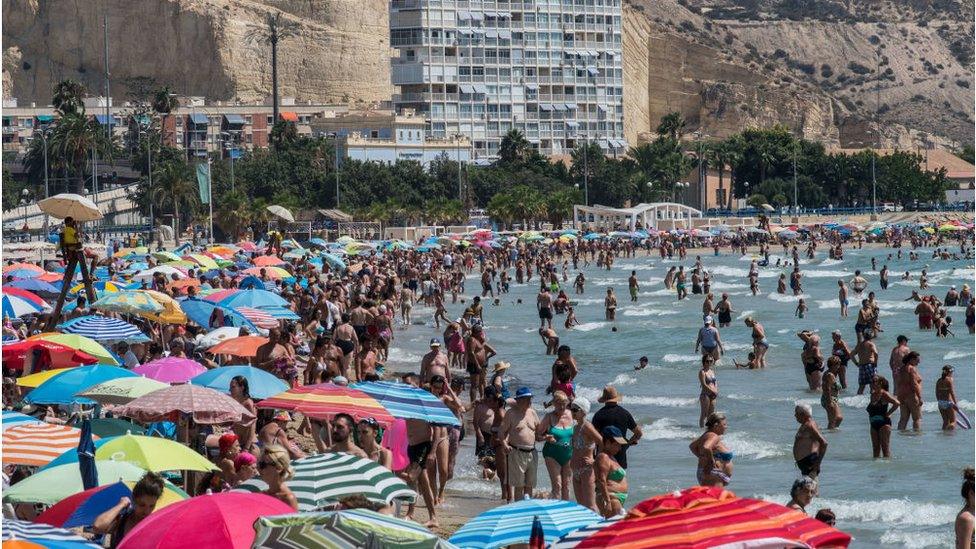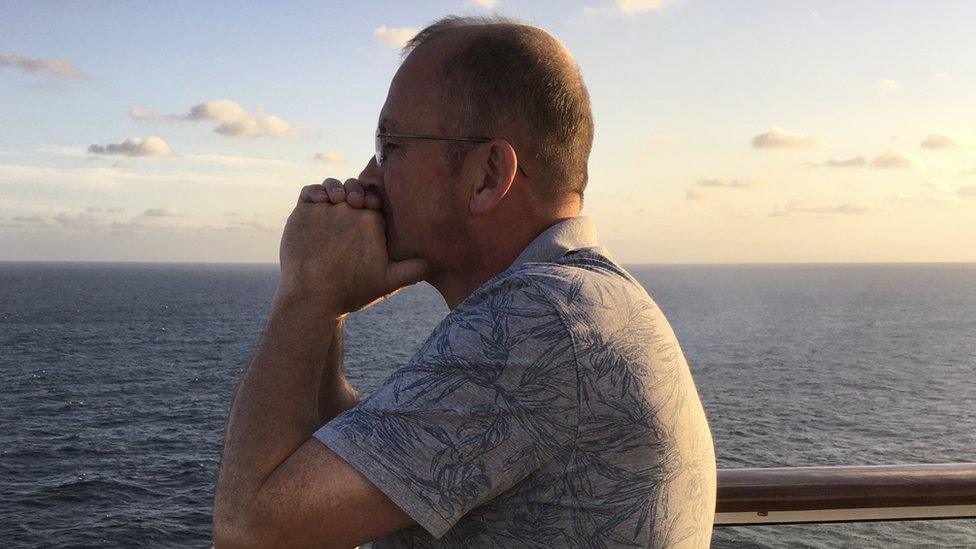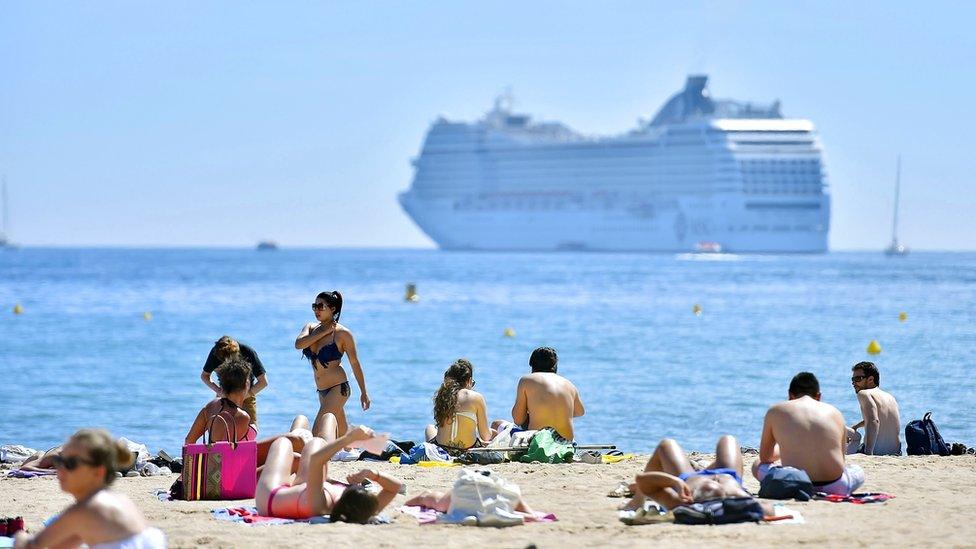Fraudsters 'stole £7m' from holidaymakers in 2018
- Published

More than 5,000 people were the victims of holiday booking fraud last year, with their total losses amounting to £7m, research suggests.
Travel association ABTA said victims lost an average of £1,380 each, having bought bogus airline tickets, accommodation or organised tours.
It said fraudsters were using increasingly sophisticated methods to target people looking for good deals.
"This crime causes very real emotional distress," boss Mark Tanzer said.
"As victims often find out just before they travel, or even in resort, that they have been defrauded, it can then be very difficult and expensive to obtain a legitimate replacement booking," he added.
More than half (53%) of the crimes related to the sale of airline tickets, with scammers particularly targeting people visiting family and friends in Africa and the Indian subcontinent.
One in four cases involved accommodation, such as payments to stay in upmarket villas which are either fictitious or are being offered without the owner's knowledge.
Spain and France were among the destinations most commonly affected.

Top tips to avoid becoming a holiday fraud victim
Check the booking agent's web address is legitimate and has not been altered by slight changes to a domain name - such as going from .co.uk to .org
Don't just rely on one review - do a thorough online search to check the company's credentials
Check whether the company is a member of a recognised trade body such as ABTA
Wherever possible, pay by credit card and be wary about paying directly into a private individual's bank account
Study receipts, invoices as well as terms and conditions
If something sounds too good to be true, it probably is.
Source: ABTA, Action Fraud and Get Safe Online

'These people have no compassion'
In one instance, Neil Garnham from Rochester, lost £350 out of the £1,150 he was going to spend on a villa in Spain.
His daughter found the property via Facebook and talked to the owner about what the family wanted - including child-friendly equipment.
"The 'owner' of the place said she didn't normally let out her villa to anyone who wasn't a friend or family member but she liked the sound of us and wanted to help," he told the BBC.
"She said there was high demand on the dates we wanted to go but she only wanted to let it out to us. I went ahead and booked for a week."

Neil Garnham lost £350 to scammers
Neil paid the deposit by bank transfer and was given receipts and a contract. However, when he tried to clarify details for the final payment, the email address and phone numbers no longer worked and the original Facebook posting had been removed.
"We reported this to our bank but understandably they cannot refund our money. We will be going on holiday but we've had to pay a lot more. These people have no compassion."
In another example, Libby from London booked a houseboat in Amsterdam for her birthday through what appeared at first to be a credible website, which asked her to pay via a money transfer service.
The price offered was low compared with other sites, and the account Libby transferred the cash to was Polish.
After repeated attempts to contact the agent, with no reply, she requested a full refund in line with the company's guarantee, but she ended up losing the cost of the rental plus a £500 deposit.
Her bank and the money transfer service both said they could not compensate her.
'Feeling of embarrassment'
Meanwhile, Sue, from Solihull, and her family booked a week's stay at a Spanish villa online.
She opted to pay half the cost up front plus a deposit - totalling £1,305 - via a bank transfer. But when she emailed the company for more information she got no reply.
In the end she lost the money and had to fork out for another villa as she had already paid for six flights.
"There is a startling emotional impact of falling victim to holiday fraud bringing the feeling of embarrassment and disappointment to those we love," said Pauline Smith, head of Action Fraud.
"It is important that you do your research when making travel arrangements."
- Published7 May 2019

- Published7 April 2018

- Published13 April 2018
